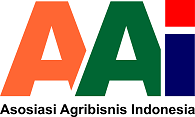Rural Women Farmers' Participation In Maize Value Chain And Socio-Economic Empowerment In South-West Nigeria
Abstract
In recent times, there has been increased participation of women in agricultural value chain, but their empowerment status is poor. Thus, evidence-based data revealing the socio-economic status of rural women participating in maize value chain is important to further strengthen women's participation in the agricultural value chain sector. The study aimed at examining participation in maize value chain and socio-economic empowerment among women in South-west Nigeria. A three-stage sampling procedure was employed in the selection of respondents for the study. The first stage involved proportionate random sampling of three states in South-west, Nigeria. Second stage involved the generation of a sample frame from the various associations of rural women farmers in MVC in the Agricultural Development Programme zones. Last stage, 20% of the total of rural women farmers involved in MVC was selected to give a sample size of 539 respondents. Data were collected through interviewer-administered questionnaire and analyzed using both descriptive and inferential statistics. The findings from the study were that the participation mean score of the respondents in marketing and processing were high (71.2%, 73.1%) respectively, the mean participation score in MVC was 67%; respondents' percentage mean score based on socio-economic empowerment status after participation in MVC was high (60%). Major constraints to participation in MVC activities were high cost of transportation to market (x̄=1.27) ranked 1st and inadequacy of extension service delivery (x̄=1.22) ranked 2nd; and participation in MVC activities had positive and significant relationship with the socio-economic empowerment status of the respondents (r=0.380; p=0.000). The study concluded that the level of rural women farmers' participation in MVC activities was high and impacted their socio-economic status positively. The study recommended that agricultural extension agency should focus on empowering the rural women by providing extension services needed for market linkage and bulk transportation of produce to target markets.
Keywords
Full Text:
PDFReferences
Adesiji, G. B., Joseph, J. K., Gunu, U., Awoyemi, A. O., & Adelowo, J. Y. (2022). Contributions of rice entrepreneurial activities to sustainable livelihood assets of rice farmers in Kwara State, Nigeria. SVU-International Journal of Agricultural Sciences, 4(2), 1-9. https://dx.doi.org/10.21608/svuijas.2022.110686.1160
Akaninyene, O., Maurice, O., & Anunobi Chizoba, P. (2022). Rural Women Involvement in Oil Palm Value Chain in Akwa. Canadian Journal of Agriculture and Crops, 7(2), 105-111. https://doi.org/10.55284/cjac.v7i2.697
Ani, F., Samah, A. A., Damin, Z. A., Jaes, L., Isa, K., Yusoff, R. M., Johar, S. S., & Hamzah, S. (2018). Participation and women's economic empowerment: Clarifying their relationship in community based organization. International Journal of Engineering & Technology, 7(4.9), 211-215. http://dx.doi.org/10.14419/ijet.v7i4.9.20676
Askar, M. W. (2015). Agricultural transformation, economic growth, and poverty in Indonesia. JIAP, 1(1), 17-21. https://doi.org/10.21776/ub.jiap.2015.001.01.4
Ater, P., Aye, G. C., & A, D. (2018). Analysis of maize value addition among entrepreneurs in Taraba State, Nigeria. International Journal of Environment, Agriculture and Biotechnology, 3(6), 2011-2019. https://doi.org/10.22161/ijeab/3.6.8
Awoyemi, B. O., Afolabi, B., & Akomolafe, K. J. (2017). Agricultural productivity and economic growth: impact analysis from Nigeria. Scientific Research Journal, V(X1), 1-7. http://eprints.abuad.edu.ng/594/
Babatunde, T. O., & Solomon, K. A. (2019). Sustainability of agriculture value chain by rural women for income generation in Oluyole Local Government of Oyo State, Nigeria. Asian Journal of Agricultural Extension Economics & Sociology, 36(1), 1-10. http://dx.doi.org/10.9734/ajaees/2019/v36i130232
Badmus, A. I., Oyelere, G. O., Aremu, A. O., Orija, S. J., & Atigbi, T. O. (2015). Women farmers' contributions to maize production in Afijio Local Government of Oyo State. International Journal of Applied Agricultural and Apicultural Research, 11(1&2), 77-85. https://www.ajol.info/index.php/ijaaar/article/view/141578
Bairwa, S. L, Lakra, K., Kushwaha, S., Meena, L. K., & Kumar. P. (2014). Agripreneurship Development as a tool to upliftment of Agriculture. International Journal of Scientific and Research Publications, 4(3), 1-4. https://www.ijsrp.org/research-paper-0314.php?rp=P272427
Dada, M. A., & Fayomi, A. (2015). Gender and Marriage Status as Correlate of Business Performance in the Rural Non-farm Sector in Osun State of Nigeria. Institute for Entrepreneurship and Development Studies (IFEDS) 1st International Conference, Conference Centre Obafemi Awolowo University, Ile-Ife Nigeria, 1(1), 1-6.
Didana, A. C. (2019). Determinants of rural women economic empowerment in agricultural activities: The case of Damot Gale Woreda of Wolaita Zone, SNNPRS of Ethiopia. Journal of Economics and Sustainable Development, 10(3), 30-49. https://doi.org/10.7176/JESD/10-3-05
Ejike, R. D., Osuji, E. E, Effiong, J. A. L., & Agu, G. G. (2018). Gender Dimension in Agricultural Food Value Chain Development in Nigeria: The Women Perspective. International Journal of Agriculture and Earth Science, 4(3), 37-45. https://www.iiardjournals.org/get/IJAES/VOL.%204%20NO.%203%202018/Gender%20Dimension.pdf
Erenstein, O., Jaleta, M., Sonder, K., Mottaleb, K., & Prasanna, B.M (2022). Global maize production, consumption and trade: trends and R&D implications. Global Food Security; 14,1295-1319. https://doi.org/10.1007/s12571-022-01288-7
Gaya, H. I., Tegbaru, A., Bamire, A. S., Abdoulaye, T., & Kehinde, A. D. (2017). Gender differentials and adoption of drought tolerant maize varieties among farmers in northern Nigeria. European Journal of Business and Management, 9(5), 81-87. https://core.ac.uk/download/pdf/234627739.pdf
Hayder, Malek. (2022). Three challenges for rural women amid a cost-of-living crisis. Retrieved 16 July 2023, from https://www.unwomen.org/en/news-stories/feature-story/2022/10/three-challenges-for-rural-women-amid-a-cost-of-living-crisis
ILO [International Labour Organization]. (2018). Rural women need equality now. Retrieved 16 July 2023, from https://www.ilo.org/moscow/news/WCMS_621364/lang--en/index.htm
Khan, A. R., & Bibi, Z. (2011). Women's socio-economic empowerment through participatory approach: a critical assessment. Pakistan Economic and Social Review, 49(1), 133-148. https://www.jstor.org/stable/41762427
Njiraini, G., Ngigi, M., & Barake, E. (2018). Women in African Agriculture: Integrating women into value chains to build a stronger sector" Zef center for Development Research, University of Bonn, working paper. Research for Agricultural Innovation. Accessed: March 18, 2023. Available from: https://ssrn.com/abstract=3266365
Ogunwande, I. O., & Akinrinola, O. O. (2020). Value chain analysis of maize production among rural households in Oyo State, Nigeria. Journal of Agriculture and Veterinary Science, 13(9), 44-50. https://doi.org/10.9790/2380-1309034450
Olaleye, R. S., Ibrahim, M., & Ojo, M. A. (2009). Probit Analysis of women Farmers Access to Agricultural Inputs in Bosso Local Government Area, Niger State, Nigeria. Nigerian Journal of Agricultural Extension, 13(2), 12-20. https://www.ajol.info/index.php/jae/article/view/53889
Omoare, A. M., Fakoya, E. O., Fapojuwo, E. O., & Oyediran, W. O. (2014). Assessment of value addition in value chain of sweet potato (Ipomoea batatas (L.) Lam) in Osun State, Nigeria. World Academy of Science, Engineering and Technology (WASET), 8(1), 20-24. https://publications.waset.org/9997146/pdf
Omoare, A. M., Oyediran, W. O., & Ogbonna, C. (2019). Rural women entrepreneurial skills in maize value addition in Abeokuta Metropolis, Nigeria. Economy, Asian Online Journal Publishing Group, 6(1), 7-12. https://ideas.repec.org/a/aoj/econom/v6y2019i1p7-12id935.html
Özsayin, D., & Korkmaz, M. (2021). Role of rural women in organic farming: A case study from Turkey. New Medit: Mediterranean Journal of Economics, Agriculture and Environment, 20(5), 17-32. http://dx.doi.org/10.30682/nm2105b
Uma, K. E., Eboh, F. E., Obidike, P. C., & Ogwuru, H. O. R. (2013). Poverty, underdevelopment and emerging economies: Nigeria in focus. Global Journal of Management and Business Research Finance, 13(6), 25-32. https://journalofbusiness.org/index.php/GJMBR/article/view/1134
Warr, P., & Suphannachart, W. (2021). Agricultural productivity growth and poverty reduction: Evidence from Thailand. Journal of Agricultural Economics, 72(2), 525-546. https://doi.org/10.1111/1477-9552.12412
DOI: https://doi.org/10.37046/jaj.v5i1.21880
Refbacks
- There are currently no refbacks.
Copyright (c) 2023 Adeseye Oluwasikemi Awoyemi, Gbolagade Benjamin Adesiji, Kemi Funmilayo Omotesho

This work is licensed under a Creative Commons Attribution-NonCommercial-ShareAlike 4.0 International License.
Jambura Agribusiness Journal (P-ISSN: 2685-5860, E-ISSN: 2685-5771) is licensed under a Creative Commons Attribution-NonCommercial-ShareAlike 4.0 International License. Powered by Public Knowledge Project OJS










